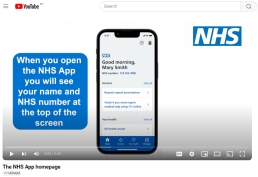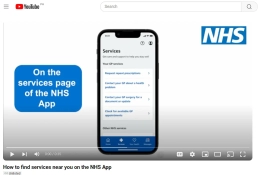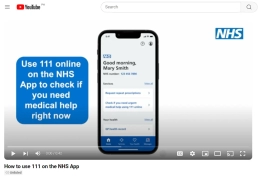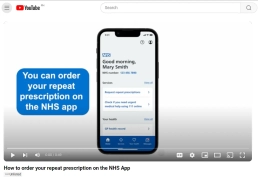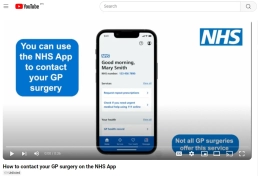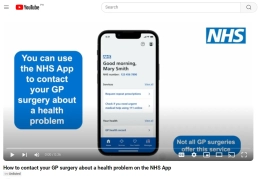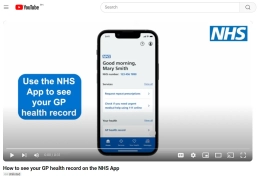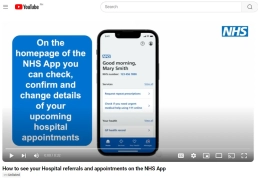Hay Fever Relief South West London | Private Hay Fever Injection & Hay fever Treatment
Looking for Hay Fever Relief in South West London? Discover Expert Tips, Allergy Prevention & Hay fever Treatments for the Entire Season
What is Hay Fever?
Understanding hay fever, common allergies, and how pollen exposure triggers symptoms during the peak of the pollen season.
Hay fever, also known as seasonal allergic rhinitis, is a common allergic reaction to allergens such as grasses and tree, or other pollens. It typically affects people in the spring and summer months. These months are known as the hay fever season, which usually starts in late March and can persist throughout the entire summer. Many individuals experience symptoms like sneezing, runny nose, nasal congestion, and itchy or irritated eyes. These are classic hay fever symptoms, and while they may seem minor, they can greatly impact daily life.
Hay fever occurs when the body’s immune system overreacts to allergens. This leads to nose, eye, throat, and sinuses inflammation. People who suffer from hay fever often experience symptoms persistently each year, especially when pollen counts are high. It’s important to understand that hay fever is more than just a nuisance—it can lead to severe discomfort and even interfere with breathing in more severe cases.
Common Symptoms & Triggers
Identify typical hay fever symptoms, allergy responses, and pollen’s impact during severe hay fever cases in South West London.
The most common symptoms of hay fever include sneezing, runny nose, itchy eyes, nasal congestion, and sometimes even abdominal pain or breathing difficulties in severe cases. These symptoms of severe allergic reactions are usually triggered by pollen, dust mites, and other environmental allergens.
People who suffer from hay fever often report increased symptoms during high pollen count days. Tree pollen and grass pollen are among the most common triggers in the UK. Hay fever can also be aggravated by weather changes, pollution, and other allergens.
Severe hay fever symptoms may require medical attention and a tailored course of
treatment. Consulting a GP at Wandsworth Medical Centre if you have severe symptoms can help identify the specific allergens and provide effective treatment options.

How to Manage Hay Fever Naturally
Explore natural hay fever treatment options alongside hay fever treatment alternatives and non-invasive allergy management tips.
There are many ways to prevent and treat hay fever. Please click on this link for NHS advice for Hay fever.
You can prevent hay fever symptoms by limiting exposure to allergens, keeping windows closed during peak pollen hours and using air purifiers can help suppress exposure to allergens indoors. Monitoring the pollen count regularly allows sufferers to plan their outdoor activities more effectively.
There are also several natural remedies to alleviate hay fever symptoms. Herbal remedies and saline rinses are also helpful for cleansing nasal passages.
Many individuals also benefit from using over-the-counter nasal and eye drops that reduce inflammation and help ease irritation. A pharmacist can help with hay fever, and hay fever treatments are available to buy without a prescription. Using nasal sprays, eye drops, and non-drowsy antihistamine tablets can provide relief from symptoms.
It’s important to note that while these methods can offer temporary relief, they might not work for everyone. For severe symptoms, book an appointment at Wandsworth Medical Centre, your trusted GP practice in London Wandsworth Medical Centre.
When to Seek Medical Advice
Know when to seek help for severe hay fever symptoms
If your symptoms persist despite using over-the-counter remedies or natural methods, it’s time to seek medical advice. Treatment for hay fever varies depending on the severity of symptoms and individual medical history.

How Wandsworth Medical Centre Can Help
At Wandsworth Medical Centre, we offer a variety of treatments in London tailored to meet individual needs. Our GP practice provides expert care and consultation to patients suffering from seasonal allergic rhinitis. Whether you’re dealing with mild irritation or severe hay fever symptoms, our healthcare professionals are here to help.
Conclusion: If you suffer from hay fever, don’t let the hay fever season hold you back.
Be proactive—monitor the pollen count, take preventive steps, and explore treatments available to ensure you stay comfortable throughout spring and summer. If symptoms worsen or persist, don’t hesitate to seek help. Get in touch with Wandsworth Medical Centre today and find the relief from the symptoms of hay fever you deserve.
For more frequently asked questions, expert advice, and resources on hay fever relief in South West London, visit wandsworthmedicalcentre.co.uk or call us to book your consultation today.
Breast Cancer Screening UK | NHS Breast Screening – Help You Decide
Breast Cancer Screening UK: How NHS Breast Screening and Mammograms Help You Decide and Ensure Early Detection
The Benefits of Breast Cancer Screening UK – Early Detection Saves Lives
Discover how Breast Cancer Screening UK helps detect cancer early, improving treatment outcomes. Learn about the benefits of mammograms, the role of your local breast screening unit, and why attending your NHS breast screening appointment is vital.
Breast cancer screening is a vital health service that helps detect breast cancer at an early stage, often before symptoms appear. The NHS Breast Screening Programme invites women between the ages of 50 and 70 to attend a breast screening every 3 years. Screening can identify cancers that are too small to see or feel, improving treatment outcomes and saving lives.
How Breast Cancer Screening Works
Breast screening uses X-ray imaging, known as a mammogram, to detect abnormal breast tissue changes. A mammogram looks abnormal when it picks up signs of cancer, prompting further tests. Women diagnosed with breast cancer at an early stage often have more treatment options and a better prognosis.
The NHS England recommends mammograms every 3 years for women over 50. Those assigned female at birth should check their eligibility for screening through their local breast screening unit. If you have concerns about your breast health, you can ask for an appointment at your local screening unit or call your local breast screening service for guidance.
The Benefits of Regular Breast Screening
-
Early Detection Saves Lives
Breast cancer screening can detect cancers at an early stage, often before symptoms develop. Early diagnosis and treatment significantly improve the survival rate. Each year in the UK, screening helps detect thousands of cases that might otherwise go unnoticed. -
Identifying Cancer Before Symptoms Appear
Screening can detect cancers that would never be found through a breast examination alone. Many women diagnosed through screening have cancers that are too small to be felt manually. The screening process can also pick up breast changes that may develop into cancer if left untreated. -
Reduced Mortality from Breast Cancer
Studies show that breast screening saves approximately 1,300 lives from breast cancer in the UK each year. For every 100 women screened, a small number will be found to have cancer. Early diagnosis significantly reduces deaths by enabling timely and effective treatment. -
Regular Screening for Long-Term Protection
Women are typically screened every 3 years for 20 years, ensuring continued monitoring. If you are invited for breast screening, attending your appointment is crucial for ongoing breast health.
What Happens If You Are Called Back for More Tests?
After a mammogram, some women may be called back for more tests. This doesn’t always mean cancer is present; sometimes, an abnormal mammogram may be due to benign breast tissue changes. If necessary, further tests can determine whether a breast cancer diagnosis is needed.
Women asked to return may undergo additional imaging or a biopsy. Some cases involve ductal carcinoma in situ (DCIS), a non-invasive cancer that may or may not develop further. Early intervention can prevent serious complications.
What Happens If You Don’t Attend Breast Screening?
Neglecting to attend your breast screening every 3 years increases the risk of breast cancer going undetected. Women who skip screening are at greater risk of being diagnosed with breast cancer at a more advanced stage, limiting treatment options.
Not attending screening means missing the chance to detect breast cancer at the earliest stage. Delaying screening can lead to later diagnoses when treatment is more complex. Missing an appointment can also result in cancers progressing to a stage where they are more difficult to treat.
Understanding the Benefits and Risks of Breast Screening
While breast screening uses advanced imaging techniques, there are risks to consider. Screening may detect cancer that would never cause symptoms or harm, known as overdiagnosis. However, the benefits outweigh the risks. By finding cancers early, screening ensures timely treatment and improved outcomes. The NHS provides additional support for women who need help with accessibility or understanding the process.
The Risks of Skipping Breast Cancer Screening UK – What You Need to Know
Not attending your breast cancer screening UK appointment can delay diagnosis, leading to severe consequences. Learn about the symptoms of breast cancer, the risks of breast screening, and why missing your local breast screening can impact your health.
Breast cancer screening is a crucial part of early detection, and missing your appointment can delay a diagnosis that could save your life. Women are invited to attend breast cancer screening every three years between the ages of 50 and 70. However, some may choose not to attend or feel uncertain about the process. It’s essential to understand the potential risks of skipping this vital procedure and how it could impact your health.
A mammogram is the primary test used during breast cancer screening. It’s a low-dose X-ray that helps detect abnormal changes in the breast tissue, even before symptoms appear. These changes may not always indicate cancer, but they can point to issues that require further investigation. If problems are detected, additional tests, such as another mammogram or ultrasound, may be necessary.
By skipping your breast screening appointment, you could be delaying the detection of breast cancer. Early diagnosis is vital for successful treatment. Cancer grows over time, and the sooner the disease is caught, the better the chances of successful treatment and recovery.
A mammogram is still the most effective way to detect breast cancer before it becomes detectable by other means. It can often detect cancer when it is too small to be felt or seen. However, the mammogram may sometimes miss a cancerous lump, and additional tests may be required for further confirmation. This is why attending regular screenings is essential, even after the age of 70, if invited.
For those who may feel anxious or fearful about breast screening, it’s important to know that the screening service offers support and guidance. If you need assistance, you can contact the breast screening service for help. They will explain what happens during the procedure and ensure you feel comfortable and informed. If you are unable to attend, you will receive a letter inviting you to rebook. Don’t hesitate to reach out for help—your health is the top priority.
Take Control of Your Health Today with NHS Breast Cancer Screening UK at Wandsworth Medical Centre
If you’ve been invited for breast screening, it’s essential to schedule your appointment with your local breast screening service. The NHS Breast Screening Programme plays a vital role in reducing deaths from breast cancer by offering regular mammograms after screening. These tests help pick up breast cancer that would never otherwise have been seen, giving women diagnosed with breast cancer the opportunity to be treated for breast cancer early.
Once you reach the age of 50, you will receive a letter inviting you to attend breast screening every 3 years. If you haven’t received your invitation, you can call your local breast screening service to ask about your eligibility. Women with breast cancer who attend screening are often diagnosed and treated for breast cancer at a much earlier stage, improving survival rates.
After your screening, you will get your results within two weeks. If the mammogram shows any abnormalities, you may be asked to come back for more tests. This doesn’t necessarily mean you have breast cancer, as some breast problems rarely cause cancer. However, early detection of signs of breast cancer is crucial to prevent you from getting breast cancer at a later stage, which may be harder to treat.
For those who need additional support to attend screening or would like to understand what will happen during the process, the NHS provides guidance. Don’t worry if you need help – healthcare professionals are available to explain what will happen during your screening and to support you in attending your appointment.
Remember, if you continue to have breast screening every 3 years, you’re taking a proactive step in finding breast cancers early and receiving treatment sooner. Whether you’re diagnosed with breast cancer or not, attending your screening regularly can help ensure better health outcomes. Don’t wait, book your screening appointment today, and get your results early with the support of Wandsworth Medical Centre. Your health is your priority, and early screening saves lives.
Vitamin D Supplementation UK: Essential Guide to Vitamin D Deficiency and NHS Recommendations
Vitamin D Supplementation UK: Why You Need to Take Vitamin D to Prevent Deficiency | Wandsworth Medical Centre
The History and Importance of Vitamin D Supplementation UK: Understanding the Role of Vitamin D in Maintaining Optimal Health
Vitamin D is vital for regulating calcium and phosphate levels, which are essential for healthy bones, teeth, and muscles. Historically, humans obtained vitamin D from sunlight, but limited exposure—especially in the UK during the autumn and winter months—has made supplementation essential.
Vitamin D and Its Role in Health
Vitamin D, known as the “sunshine vitamin,” is crucial for calcium absorption and bone health. A lack of vitamin D can lead to rickets in children, causing bone deformities, and osteomalacia in adults, resulting in bone pain and muscle weakness. In the UK, from October to March, the government advises everyone, including pregnant and breastfeeding women, to take a daily supplement containing 10 micrograms of vitamin D.
Vitamin D Deficiency and the Importance of Supplementation
Vitamin D deficiency is common due to limited sunlight exposure, particularly for those with darker skin, such as individuals of African-Caribbean or South Asian descent. These groups are encouraged to take supplements year-round.
The NHS recommends that children aged 1 year and older, adults, and pregnant women take 10 micrograms of vitamin D daily. Breastfed babies, especially those not receiving adequate fortified infant formula, should take 8.5 to 10 micrograms of vitamin D daily to support healthy bone development.
Sources of Vitamin D and Supplementation Needs
While sunlight is the primary source of vitamin D, it can be difficult to get enough from sunlight alone in the UK, especially during the winter. Foods rich in vitamin D, such as oily fish, red meat, egg yolks, and fortified foods like breakfast cereals, can help, but often not enough to meet the required levels. Therefore, supplementation is necessary for many individuals.
For those needing extra vitamin D, supplements containing 10 micrograms or 8.5 to 10 micrograms are widely available in pharmacies and supermarkets. Vitamin D drops are also suitable for infants, ensuring even young children get their required intake.
Health Risks of Vitamin D Deficiency
Without adequate vitamin D, the body cannot properly regulate calcium, weakening bones and increasing the risk of fractures. In children, deficiency can cause rickets, while adults may experience osteomalacia. Prolonged deficiency can lead to hypercalcaemia, where excessive calcium builds up in the blood, potentially causing kidney damage.
Regular monitoring of vitamin D levels and ensuring proper intake through supplements, food, and sunlight exposure can help prevent these issues. During the autumn and winter months, taking a daily supplement is essential to maintain healthy vitamin D levels and reduce the risk of bone-related diseases.
Why Do You Need to Take Vitamin D?
Vitamin D is essential for supporting overall health, particularly in maintaining healthy bones, teeth, and muscles. Vitamin D helps the body absorb calcium and phosphate, which are crucial for bone health. In the past, humans obtained sufficient vitamin D from exposure to sunlight, as the skin naturally produces vitamin D when exposed to the sun. However, due to factors such as geographic location, lifestyle, and weather conditions, people in the UK—especially during the autumn and winter months—may struggle to get enough vitamin D from sunlight alone. This has increased the need for vitamin D supplementation throughout the year.
While sunlight remains the primary source of vitamin D, it often does not meet the body’s needs in the UK, particularly in winter. Vitamin D supplementation during these months is essential to ensure your body receives the required 10 micrograms per day, as recommended by government dietary guidelines and the NHS.
Vitamin D deficiency can lead to weakened bones and muscles, increasing the risk of fractures and other health complications. In children, vitamin D deficiency can cause rickets, a condition that results in softening and deformities of the bones. Adults with insufficient vitamin D may experience osteomalacia, which causes bone pain and muscle weakness. Without enough vitamin D, the body cannot regulate calcium properly, which can weaken bones and damage the kidneys over time.
To avoid these issues, it is crucial to take vitamin D supplements throughout the year, particularly when sunlight exposure is limited, to ensure your body has the necessary vitamin D for optimal function.
How to Safely Take Vitamin D Supplement
To safely take vitamin D supplements, follow the recommended dosage. A daily supplement containing 10 micrograms of vitamin D is generally adequate for most people, although specific health conditions may require different amounts. Supplementing throughout the year—not just during autumn and winter—helps build up vitamin D in the body and ensures sufficient levels year-round.
Does Vitamin D Cause Too Much Calcium?
There is no need to worry about excessive calcium from taking vitamin D supplements in the recommended amounts. Vitamin D helps regulate calcium, ensuring it is absorbed properly for bone health. However, excessive vitamin D intake can cause too much calcium to build up in the blood, which can be harmful. For this reason, it is important to take vitamin D in the recommended dosages.
Vitamin D and Pregnancy
For pregnant women, adequate vitamin D intake is essential to prevent complications such as bone issues and to support bone health for both mother and baby. The NHS recommends that pregnant women take a daily supplement containing 10 micrograms of vitamin D.

The Benefits of Taking Vitamin D and What You Lose Without Adequate Vitamin D Levels: Why You Need to Take a Vitamin D Supplement
Vitamin D plays a crucial role in maintaining strong bones, teeth, and muscles by regulating calcium and phosphate levels in the body. Unfortunately, many people struggle to get enough vitamin D, especially during the winter when sunlight exposure is limited. This is why taking a daily vitamin D supplement is important, particularly during the colder months.
A daily supplement ensures you maintain optimal vitamin D levels throughout the year. The body produces vitamin D from sunlight, but in the UK, sunlight is often insufficient, particularly in winter. A daily supplement containing 8.5 to 10 micrograms of vitamin D can help keep your levels within the recommended range.
Without adequate vitamin D, serious health risks arise. Deficiency can cause softening of the bones, muscle pain, and weakness. Conditions like rickets in children or osteomalacia in adults are linked to insufficient vitamin D. Pregnant women with low vitamin D may also face complications, such as bone issues and an increased risk of fractures.
Certain groups, such as people with dark skin, are more prone to deficiency because their skin produces less vitamin D. Infants under 1 year, especially those not getting fortified formula, should also receive vitamin D supplements. The NHS advises that babies who receive 500ml of fortified infant formula daily should be well-supported for their vitamin D needs.
For children aged 1 year and older, a daily vitamin D supplement is vital, particularly for those with limited sunshine exposure.
Though some foods are fortified with vitamin D, they are often not enough to meet daily requirements. Therefore, supplementing with vitamin D, especially during winter, ensures proper bone health, immune support, and overall wellness.

Get Enough Vitamin D Today: Visit Wandsworth Medical Centre to Learn More About the Best Vitamin D Supplement for Your Health Needs
Vitamin D is essential for overall health, supporting your immune system, bones, and calcium regulation. Sunlight exposure helps the body make vitamin D, but during the winter months, many people, especially in the UK, don’t get enough. A daily vitamin D supplement is crucial during these months.
The government recommends 10 micrograms of vitamin D per day. Factors like age, skin tone, and lifestyle may affect how much you need, with individuals who spend little time outdoors or have darker skin being more likely to need supplements.
At Wandsworth Medical Centre, our expert team can help you determine the best vitamin D supplement for your needs. We provide guidance on maintaining adequate levels of vitamin D throughout the year, ensuring you stay healthy. Visit us today to learn more about vitamin D supplementation!
Healthy Eating for Weight Loss | Tips to Lose Weight with Healthy Diet
Healthy Eating for Weight Loss: Expert Tips from Wandsworth Medical Centre to Help You Lose Excess Weight and Achieve a Healthy Diet
The Benefits of Healthy Eating for Weight Loss and Managing a Healthy Weight
Discover how embracing a balanced diet with whole grains and nutrient-rich foods can support weight-loss goals, improve weight management, and reduce the risk of Type 2 diabetes.
When trying to lose weight, a healthy eating plan can make a big difference. Eating a balanced diet, rich in nutrient-dense foods, is a great way to get on the right track toward achieving your weight-loss goals and improving your overall health. By focusing on foods like whole grains, fruits, vegetables, and lean proteins, you can create healthier eating habits that support long-term weight loss and better health.
What Does a Healthy Diet Look Like?
A healthy diet is one that is low in calories but high in essential nutrients like fibre and healthy fats. Foods high in fibre, such as fruits, vegetables, and whole grains, help you feel full longer, making it easier to eat less and avoid overeating. Additionally, healthy fats, found in foods like avocados, nuts, and olive oil, provide energy and are essential for heart health.
For those trying to lose weight, it’s a good idea to be mindful of portion sizes and opt for foods low in calories and high in nutrition. Avoid foods and drinks with added sugar, processed carbohydrates like white bread, and items high in calories with little nutritional value. Instead, focus on plant-based options and natural sugars in fruits, which can help you maintain a healthy weight.
The Impact of Healthy Eating on Weight Management
A healthy eating plan combined with regular physical activity is one of the most effective ways to lose weight and keep it off. Obesity and being overweight are often associated with health conditions like heart disease and Type 2 diabetes. However, adopting healthier eating habits can significantly reduce these risks. By eating delicious, nutrient-rich meals, you can manage your weight and improve your overall health and wellbeing.
Studies show that starting a diet and exercise routine that focuses on balanced, portion-controlled meals can help you lose 1 to 2 pounds per week. This is considered a safe and sustainable way to lose weight. A weight management program tailored to your needs can provide support, whether you want to lose weight or maintain a healthy weight.
Practical Tips for a Healthy Lifestyle
- Plan Balanced Meals
Aim for every meal to include a mix of lean protein, healthy fats, and carbohydrates from whole grains or plant-based sources. For example, a delicious healthy keto diet could include avocado, eggs, and spinach cooked with olive oil. - Mind Portion Sizes
Use smaller plates to help you stick to appropriate portion sizes. This prevents overeating and helps control daily calorie intake. - Snack Smartly
Replace high-calorie snacks with healthy snack options like fresh fruit, unsalted nuts, or low-fat yoghurt. These choices are lower in calories and high in essential nutrients. - Stay Hydrated
Drinking water throughout the day can help you avoid mistaking thirst for hunger, a common cause of eating too much. - Reduce Processed Foods
Cut back on foods like white bread and other refined carbohydrates. These can spike blood sugar levels and leave you feeling hungry soon after eating. - Incorporate Physical Activity
Diet and physical activity go hand in hand. Regular exercise not only burns calories but also supports heart health and helps improve overall fitness levels.
Overcoming Challenges
Trying to lose weight without eating a balanced diet can be difficult and may lead to eating patterns that don’t support your goals. It’s important to seek advice from a healthcare professional or nutritionist to create a dietary plan that meets your specific requirements, particularly if you have underlying health conditions or are recovering from eating disorders.
If you’re struggling to stick to a healthy diet, consider joining a weight management program. These programs can offer tailored advice, meal plans, and support to help you stay on track. Tools like the free NHS Weight Loss Plan can also provide practical tips to start losing weight and develop healthy new habits.
Why Healthy Eating Matters
Healthy eating is more than a strategy for weight loss; it is a foundation for lifelong wellbeing. Choosing nutrient-rich foods over high-calorie, low-nutrient options helps you maintain energy, support your immune system, and reduce the risk of conditions like heart disease and Type 2 diabetes. Every small change—such as swapping sugary snacks for fresh fruit or opting for whole grains—contributes to better health.
Neglecting a balanced diet, however, can lead to health issues like obesity, blood sugar imbalances, and poor energy levels. For individuals with specific needs, such as managing prediabetes or following a tailored diet plan, the stakes are even higher. Healthy changes can help you achieve steady progress, such as losing 0.5 to 1 kilogram per week, while promoting long-term success.
The Risks of Skipping Healthy Eating: How It Affects Weight Loss and Overall Health
The Link Between Skipping Healthy Eating and Weight Loss Challenges
When you’re trying to lose weight, consuming fewer calories is an essential first step. However, the quality of those calories matters just as much as the quantity. A diet plan rich in nutrient-dense foods like fruits, vegetables, lean proteins, and whole grains helps your body function efficiently and supports healthy weight loss.
Failing to prioritise healthy eating often leads to consuming foods high in calories and low in nutritional value. This imbalance can result in weight gain or make it difficult to shed extra pounds. Additionally, an unhealthy diet can leave you feeling sluggish, making it harder to engage in physical activity—a key component of successful weight management.
Health Risks Associated with Poor Dietary Choices
Skipping healthy eating is associated with weight-related health issues, including obesity, heart disease, and Type 2 diabetes. Poor eating habits can also lead to fluctuations in blood sugar levels, low energy, and difficulty concentrating. These issues don’t just affect your ability to lose weight; they can significantly impact your overall wellbeing.
For those with specific dietary requirements or health conditions, such as being a Mayo Clinic patient or managing prediabetes, poor nutrition can exacerbate health problems. Without a dietary approach tailored to your needs, the path to optimal health becomes even more challenging.
The Role of Healthy Changes in Long-Term Success
Healthy weight loss is not about quick fixes—it’s about making sustainable, healthy changes that fit your lifestyle. Simple steps like choosing smaller portion sizes, replacing sugary snacks with fruits, and incorporating lean proteins into every meal can make a significant difference.
When you adopt a diet plan that aligns with your goals, you’re more likely to see steady progress, losing 0.5 to 1 kilogram per week in a healthy way. This approach is safer and more sustainable than crash diets, which often fail to deliver lasting results.
Practical Tips for Better Eating Habits
- Prioritise Nutrition: Focus on nutrient-rich foods to meet your dietary requirements and support your energy levels.
- Plan Meals: A structured eating plan helps you make mindful food choices and reduces the likelihood of overeating.
- Seek Support: Sharing your goals with someone you care about can provide encouragement and accountability.
Start Your Healthy Eating Journey Today with Wandsworth Medical Centre

Download the free NHS Weight Loss Plan and explore the best diet for weight loss, healthy eating tips, and effective strategies for losing excess weight. Visit our website now to achieve your goals!
Healthy eating is a cornerstone of weight management and overall wellbeing. Whether you’re trying to lose excess weight or maintain a healthy weight, making smart food choices can set you up for success. With support from healthcare professionals and tools like the NHS Weight Loss Plan, you can embark on a weight-loss journey that’s both healthy and sustainable. Remember, every small step you take today can lead to big improvements in your health tomorrow.
At Wandsworth Medical Centre, we are here to support you on your journey to better health.
Ready to take the next step? Contact us today to learn more about how staying fit and healthy can transform your well-being.
Stay Fit and Healthy with Expert Tips from Wandsworth Medical Centre – Stay Fit, Stay Healthy
How Can You Stay Fit and Stay Healthy as You Get Older? Ways to Stay Fit and Expert Tips for Staying Healthy by Wandsworth Medical Centre
Introduction: Why It’s Essential to Stay Fit and Healthy as You Get Older
Learn how physical activity and healthy eating can help you stay fit and healthy as you age.
Staying fit and healthy as you age is one of the most effective ways to thrive throughout your life. Whether you’re in your 30s, 40s, or beyond, adopting a physically active lifestyle can help you maintain your independence, improve your health, and reduce the risk of chronic diseases. A healthy lifestyle, which incorporates regular exercise and healthy eating, not only enhances your cardiovascular health but also helps manage stress, boost your mood, and prevent conditions like type 2 diabetes and hypertension. By making healthy choices and committing to at least 150 minutes of physical activity a week, you’re setting yourself up for a healthier, happier future.
The Benefits of Staying Fit and Healthy: Manage Stress and Boost Your Body and Mind
Discover how regular exercise, managing stress, and eating well can improve your overall well-being.
Physical Activity: The Key to Better Health
Physical activity is a crucial aspect of staying fit and healthy, especially as you get older. The NHS recommends adults get at least 150 minutes of moderate-intensity physical activity each week. This can be achieved through a variety of activities, such as brisk walking, cycling, or aerobic exercises. The benefits of staying active are vast, with improvements in cardiovascular health, a stronger immune system, better mood, and reduced risk of developing chronic conditions like type 2 diabetes, heart disease, and even some cancers. Even small amounts of activity can have significant health benefits, and the more you do, the greater the impact.
By staying physically active, you also reduce your risk of developing conditions such as cardiovascular disease, arthritis, and obesity. Engaging in regular exercise helps maintain a healthy weight, improve muscle strength, and boost your overall energy levels. As you age, it becomes even more critical to stay active, as it can help reduce the effects of aging on your body, improve your balance and mobility, and ensure you continue to enjoy a full and active life.
Healthy Eating: Fueling Your Body for Success
Alongside regular physical activity, eating healthy is one of the most effective ways to stay fit and healthy as you age. The food you consume plays a vital role in your overall health, providing the nutrients your body needs to function properly. Healthy eating supports your immune system, boosts energy levels, and helps maintain a healthy weight.
When aiming to stay healthy, it’s essential to focus on consuming a balanced diet, which includes plenty of fruits, vegetables, lean proteins, and whole grains. Avoiding processed foods, which are often high in sugar, salt, and unhealthy fats, is key to managing your weight and reducing your risk of developing chronic health conditions like hypertension and type 2 diabetes.
Preparing healthy meals at home is a great way to control what you’re eating. You can make better choices by selecting fresh ingredients, limiting added sugars, and controlling portion sizes. A healthy diet not only helps you lose weight and keep it off but also gives you the nutrients your body needs to perform at its best. Remember, making healthy choices doesn’t have to be complicated. Simple swaps like choosing water over sugary drinks, or cooking a homemade meal rather than opting for takeout, can have a significant impact on your overall health.
The Importance of Consistency and Routine
One of the best ways to stay fit and healthy is by establishing a routine that includes regular physical activity and healthy eating. The more consistently you incorporate these healthy habits into your daily life, the easier it becomes to maintain them. Building a routine helps you make exercise and healthy eating part of your everyday life, making it much easier to stay on track.
Try to set aside specific times in your day for exercise, whether it’s a brisk walk at lunch, a cycle to work, or an evening workout session. You can also make simple changes to your daily routine, such as parking further away from your destination to get extra steps or taking the stairs instead of the lift. These small adjustments can add up over time, helping you meet your weekly activity goals.
Tracking your progress can also keep you motivated. Use a fitness tracker or an app to monitor your steps, active minutes, or calories burned. Setting daily or weekly goals and celebrating when you reach them will help you stay engaged and excited about your health journey.
What Happens to Your Body Without Physical Activity? The Importance of Getting Active, Make It a Habit!
Find out how a lack of physical activity affects your health and why staying fit is essential for your longevity.
If you don’t exercise regularly, your body will start to experience several negative effects. Physical inactivity can lead to weight gain, muscle weakness, and a higher risk of developing chronic conditions like type 2 diabetes, heart disease, and certain cancers. It can also impact your mental health, increasing the risk of depression, anxiety, and stress.
Without regular physical activity, your cardiovascular system becomes weaker, your muscles lose strength, and your bones may become brittle. Additionally, staying inactive can lead to poor circulation, joint stiffness, and an overall decrease in energy levels. It’s important to understand that staying active isn’t just about preventing disease – it’s also about feeling good and improving your quality of life. Exercise releases endorphins, the “feel-good” hormones, which can help boost your mood, reduce stress and anxiety, and improve sleep quality.
Get Moving and Stay Fit and Healthy with Wandsworth Medical Centre
Take the first step to a healthier lifestyle with expert tips and support from the NHS. Make it a habit to stay fit and healthy!
Tips for Staying Healthy
- Set Realistic Goals: Start with small, achievable goals, and gradually increase your activity levels over time. For example, aim for 10-minute sessions of walking or light aerobic exercise and build from there. The more active you become, the more benefits you’ll experience.
- Find Activities You Enjoy: Whether it’s walking, cycling, swimming, or dancing, engaging in activities you enjoy will make it easier to stick with your routine. The more fun the activity, the more likely you are to continue it in the long term.
- Incorporate Strength Training: Building muscle through strength exercises like resistance training or Pilates helps maintain bone density, boosts metabolism, and improves overall strength. Aim to include strength exercises at least twice a week.
- Stay Social: Exercising with friends or joining a local fitness group can keep you motivated and add a social element to your fitness routine. It’s also a great way to meet new people who share similar goals.
- Be Consistent: Consistency is key to maintaining a healthy lifestyle. Set aside time each day for physical activity, even if it’s just a brisk walk after dinner. It’s also important to make healthy food choices consistently, as the long-term impact of your habits will result in better health.

Final Thoughts: Staying Fit and Healthy Throughout Your Life
Staying fit and healthy is essential for thriving as you age. By incorporating regular physical activity and healthy eating habits into your daily routine, you can significantly improve your cardiovascular health, manage stress, and lower your risk of developing chronic conditions like type 2 diabetes and heart disease. Whether you’re walking, cycling, or simply choosing healthier foods, every positive choice you make brings you closer to a healthier, longer life.
Remember, getting active doesn’t have to be overwhelming or time-consuming. Start with small, manageable goals and gradually increase your activity levels over time. Staying active and eating healthy is a journey, but with the right mindset and consistent effort, you can experience better health, improved mood, and a higher quality of life.
As you get older, it’s important to stay physically active and make healthier choices to maintain your independence and vitality. Whether it’s through brisk walks, cycling, or preparing healthy meals, every step counts. With the right habits, you’ll be able to maintain a healthy weight, reduce your risk of chronic disease, and enjoy a vibrant life well into your later years.
If you’re unsure about where to start or need guidance on how to get fit and stay healthy, don’t hesitate to consult a healthcare professional. The Department of Health recommends getting at least 150 minutes of moderate physical activity a week to achieve optimal health. So, make the decision today – take steps to stay active, make healthier choices, and thrive throughout your life!
The health benefits of staying fit and healthy are far-reaching, positively impacting many aspects of your life. From improved mental well-being to a reduced risk of chronic conditions, staying active and making healthy choices is a step towards a brighter, healthier future. At Wandsworth Medical Centre, we are here to support you on your journey to better health.
Ready to take the next step? Contact us today to learn more about how staying fit and healthy can transform your well-being.
Quit Smoking Support: Effective Stop Smoking Services and NHS Resources to Help You Quit
Looking for Effective Quit Smoking Support? Discover How NHS Stop Smoking Services, Quit Plans, and Nicotine Replacement Therapy Can Help You Manage Cravings, Overcome Withdrawal Symptoms, and Stay Smokefree with Vaping Options!
How Quit Smoking Support from NHS Can Help You Create a Personal Quit Plan with Nicotine Replacement Therapy (NRT) and Vaping Options to Manage Cravings and Overcome Withdrawal Symptoms Effectively!
When it comes to quitting smoking, Quit Smoking Support from the NHS is an invaluable resource designed to help you quit for good. With a local stop-smoking service, you can access various free NHS options tailored to your needs. Research shows that smokers who seek help are three times more likely to quit successfully, so taking the first step toward a smoke-free life is crucial.
Creating a personal quit plan is an essential part of your journey. The NHS provides various ways to quit, including Nicotine Replacement Therapy (NRT), which may include products like nicotine patches, gum, and long-acting inhalers. These options are safe to use and can significantly reduce cravings and withdrawal symptoms, making it easier to manage the urge to smoke. For those considering alternatives to traditional smoking, e-cigarettes and vapes are considered less harmful than smoking and may be offered as part of your cessation strategy.
In addition to these options, the NHS Quit Smoking App is a fantastic tool available to help you stay on track. This app provides daily support, tips, and reminders to boost your chances of quitting. For those needing immediate advice and support, a helpline is available on 0300 123 1044. The trained advisers on this helpline can guide you through the quitting process and discuss the types of stop-smoking medicines available to help.
It’s important to understand that quitting smoking is never too late. Whether you’re trying to deal with the physical and mental health challenges of quitting or looking for strategies to deal with stress without turning to tobacco, support is available to help you stop. Smokers who want to quit can access a wealth of resources, including specialist help from your GP or local pharmacist, who can provide tailored advice based on your needs.
Remember, by making use of these free stop-smoking services, you not only enhance your chances of quitting for good but also improve your overall health, reduce the risk of secondhand smoke exposure for your loved ones, and lead a healthier lifestyle. Take that step today and make a plan to quit—your future self will thank you!

Exploring Effective Ways to Quit Smoking: The Benefits of Free NHS Stop Smoking Services, E-Cigarettes, and Vapes in Your Journey to Becoming Smoke-Free This Stoptober!
Quitting smoking can be a challenging journey, but with the right support, you’re more likely to succeed. Quit Smoking Support is essential for those looking to break free from tobacco smoking. The NHS offers free stop-smoking services that provide a range of options to help you stop. Whether you want to stop smoking entirely or are trying to quit, these services can offer the right support you need.
Helplines, such as the helpline on 0300 123 1044, can provide guidance and assistance. They can help you develop a personalized plan to quit and connect you with local resources. Research shows that people who use quit smoking support are more likely to quit smoking compared to those who try to quit on their own.
Many find that using e-cigarettes or vapes can aid in their quitting journey. These options may be available on prescription and can provide free tools to help you manage cravings. Carbon monoxide testing can also demonstrate the immediate health benefits of quitting, improving your oxygen levels and overall well-being.
Remember, you’re not alone in this journey—seeking professional support can increase your chances of becoming smoke-free. Visit smokefree.gov for more resources and information.
Get Support for Your Quit Day: Quit Smoking this Stoptober
Are you ready to take the first step toward quitting smoking this Stoptober? At Wandsworth Medical Centre, we are committed to providing you with the support you need for a successful quit journey. Our experienced team is here to guide you through every stage, from initial assessments to accessing urgent help and ongoing quit-smoking support.
You will gain quick access to specialists who can address your unique needs, enhancing your health and well-being. Whether you require immediate assistance or long-term support for your quit plan, we are dedicated to helping you every step of the way.
Book your appointment with us today and embark on your journey toward becoming smoke-free. Contact us now to discuss your individual needs and discover how we can assist you in achieving your goal of quitting smoking. Our friendly team is here to answer any questions and ensure you receive the care you deserve.
Phone: 0203 006 2741
Address: Mapleton Crescent, London, SW18 4DH
We look forward to supporting you. Don’t wait—reach out to us today and take a vital step toward a healthier, smoke-free life!
Mental Health Support in Wandsworth: Expert Wellbeing and NHS Services in South West London
Looking for Mental Health Services and Support in Wandsworth? Explore Urgent Help, Mental Health and Wellbeing Services, and Talking Therapies for a Healthier Mind
What Is Mental Health Support in Wandsworth and How Can It Improve Wellbeing in South West London?
At Wandsworth Medical Centre, we are committed to offering comprehensive Mental Health Support in Wandsworth to promote wellbeing for all our residents in South West London. Our mental health services are designed to provide personalised care and support, helping individuals address a range of mental health concerns such as stress, anxiety, and depression.
Mental Health Support in Wandsworth. Discover How Wandsworth Talking Therapies and Community Services Can Help
Our Patients can access a talking-therapy service and refer themselves to it online via Find an NHS talking therapies services – NHS (www.nhs.uk). Our practice works with the Wandsworth Talking Therapies team to provide help and tailored support. Whether you are a child, young adult, or older resident, we offer specialist mental health assessments and interventions, designed to meet individual needs and enhance mental wellbeing. Patients can access specialist mental health services provided by a psychiatrist through a referral from their GP.
Wandsworth crisis cafes – The recovery café in Tooting offers a safe, inclusive and welcoming space for adults who are struggling with their mental health during the evening and weekends. Volunteers and staff can support you to develop a safety plan, and talk through resilience and coping mechanisms if you are experiencing symptoms of ill mental health.
The café is open weekday evenings 6 to 11pm and weekends 12 to 11pm. No need for an appointment, just drop-in for a chat.
For anyone in the Wandsworth Borough facing mental health difficulties or looking for mental health advice, our team is here to help. Support and advice are available to people of all ages. If you or someone you know is in a mental health crisis, don’t hesitate to contact our reception team to make an appointment. Together, we can provide the support needed for a healthier, more resilient future.

Are You Struggling with Urgent Mental Health Issues in Wandsworth? Discover How Wandsworth Talking Therapies and Community Services Can Help
Being in a mental health crisis can feel overwhelming, leaving individuals struggling to manage emotions and daily life. Feelings of hopelessness, severe anxiety, or depression can arise suddenly and may affect both physical and emotional well-being. It can be difficult to think clearly or make decisions, impacting relationships, work, and overall health. These issues are exacerbated when urgent help isn’t readily available, causing those affected to feel isolated. For many in Wandsworth, the urgency of finding Mental Health Services becomes critical, especially when the situation involves suicidal thoughts, panic attacks, or other emergencies.
However, help is available. At Wandsworth Medical Centre, we understand the importance of person-centred support, and through various mental health services, we aim to provide high-quality care for both children and adults. From low moods to anxiety or stress, finding the right treatment is crucial to building resilience and recovering from mental health challenges. Whether it’s offering advice, guiding people in crisis, or connecting them with local organisations, we help you find the support needed. There are services available for everyone, including talking therapies, bereavement counselling, and online resources to help cope with urgent issues.
In a mental health crisis or emergency, you can call the South West London and St George’s Mental Health NHS Trust 24/7 mental health support line on 0800 028 8000. The mental health support line offers emotional support and advice to people who are affected by urgent mental health issues, at any time of the day or night. It is open to everyone, including children and adults of all ages, and to people who haven’t previously accessed mental health services.
Find Local Mental Health Services
Below are some key services you can access in Wandsworth for mental health support:
- Talk Wandsworth (IAPT) – Provides free confidential help for problems such as stress, worry, and low mood for people over the age of 18.
- Telephone: 0203 513 6264
- Website: www.talkwandsworth.nhs.uk
- Call 111, press 2. People in crisis with mental health problems can now access services through NHS 111. The number connects to a local team of call handlers with mental health training, alongside nurses and clinicians who are available around the clock. The new integrated service can give patients of all ages, including children, the chance to be listened to by a trained member of staff who can help direct them to the right place. The team can organise a mental health assessment, send out a crisis team and flag up help available in the local area.
National helplines such as the Samaritans, Mind, and The Priory also provide crucial resources to support mental health and wellbeing. For more details, see our full list of support services below, or contact Wandsworth Medical Centre for more advice.
• Samaritans – 24/7 service that is here to listen. Call 116 123
• SANEline – national out-of-hours mental health helpline. Call 0300 304 7000
• CALM – evening helpline. Call 0800 585858
• National Suicide Prevention Helpline UK – evening service. Call 0800 689 5652
• Papyrus – young person suicide support 24/7. Call 0800 068 4141
• Shout – national crisis 24/7 text service. Text ‘Shout’ to 85258
• Mind Infoline – mental health helpline. Call 0300 123 3393
How Can Wandsworth Wellbeing Hub and Charity Support Offer Immediate Mental Health Recovery for Young People?
When facing urgent mental health situations, particularly for young people, immediate and supportive intervention is essential. The Wandsworth Wellbeing Hub and local charities offer crucial services to address these urgent needs effectively.
1. Access Immediate Support: When someone is in a mental health crisis, such as experiencing suicidal thoughts or severe anxiety, it is vital to seek urgent help for mental health. The Wandsworth Wellbeing Hub provides immediate support through their crisis intervention services. For emergency situations, calling 999 can ensure prompt professional assistance.
2. Leverage Local Resources: Utilize local services like those offered by Wandsworth Medical Centre, which provides comprehensive mental health services. They can guide you through the recovery process and connect you with appropriate support and advice.
3. Seek Supportive Community Services: Engage with charities and volunteer organisations that offer emotional support. These services can provide a listening ear and practical assistance during tough times. Many organisations also run good thinking initiatives to help individuals manage their mental health proactively.
4. Use Crisis Lines: Lines such as Samaritans offer 24/7 emotional support. They provide a safe space for those who are affected by urgent mental health issues, offering confidential advice and a supportive voice.
By reaching out for help and utilizing these resources, young people facing mental health problems can receive the support they need to recover and thrive.

Ready to Access Mental Health Support in Wandsworth? Learn About Referrals, Urgent Help, and How to Get Started Today
Ready to access mental health support in Wandsworth? At Wandsworth Medical Centre, we are dedicated to providing you with the highest level of care and support for your mental well-being. Our experienced team is here to guide you through the process, from initial referrals to accessing urgent help and ongoing support.
Gain prompt access to a wide range of specialists who can address various conditions, ultimately enhancing your health and well-being. Whether you need immediate assistance or long-term mental health management, we are committed to supporting you every step of the way.
Book your appointment with us today and take the first step towards better mental health. Contact us now to discuss your individual needs and discover how we can assist you in achieving optimal health. Our friendly team is ready to help with any questions you may have and ensure you receive the care you need.
Phone: 0203 006 2741
Address: Wandsworth Medical Centre 90-92 Garratt Lane, London SW18 4DD
We look forward to welcoming you. Don’t wait—reach out to us today and start your journey towards improved mental health.
Are Whooping Cough Cases Rising in London? Explore the Impact on Cough Management with London Integrated Care
Are Whooping Cough Cases Rising in London? How Vaccination and the UK Health Security Agency Are Addressing the Surge
What Are the Symptoms of Whooping Cough in 2024? Recognise the Signs Early
With 555 confirmed cases of whooping cough reported in January 2024, recognising the symptoms early is crucial to managing and preventing this highly contagious disease. Whooping cough, also known as pertussis, presents with symptoms that can initially resemble a common cold but quickly evolve into more severe issues.
In the early stages, whooping cough often begins with a runny nose, mild fever, and a persistent cough. However, as the disease progresses, it leads to severe coughing bouts that can last for weeks. These bouts are often characterised by a distinctive “whooping” sound, especially when the individual inhales deeply after a coughing fit. This symptom is particularly alarming in young babies and children, who are at the greatest risk of severe complications.
Pregnant women are advised to get vaccinated as timely vaccination in pregnancy is the best defence against whooping cough. Vaccination helps protect not only the mother but also the newborn, who is highly vulnerable to pertussis. Since babies cannot be vaccinated until they are a few months old, they rely on the immunity passed through the mother.
Recent data shows a concerning rise in cases of whooping cough. The total number of cases confirmed in January 2024 underscores the need for increased awareness and vaccination efforts. Early diagnosis and treatment are essential to prevent severe outcomes, including infant deaths, which have been a tragic consequence in some cases.
To safeguard against whooping cough, it is important to get vaccinated and ensure that those around young babies and children are also up-to-date with their vaccinations. For comprehensive care and advice, London Integrated Care offers resources and support to manage and prevent the spread of whooping cough effectively.
How Effective Is the Whooping Cough Vaccine in Preventing Rising Cases? Insights for January 2024
As the UK faces a notable increase in whooping cough cases, with an outbreak beginning last November and continuing into January 2024, questions about the vaccine’s effectiveness have become increasingly relevant. Recent data indicates that the vaccination efforts are crucial in mitigating the severity of the outbreak, which has seen a significant rise in cases.
The outbreak, which started last November, has unfortunately led to 9 infant deaths since its onset. This highlights the importance of timely vaccination, particularly for those at the highest risk, such as young babies. Babies receive their own vaccinations starting with the 6-in-1 jab at 8 weeks, but those who are overdue or have missed their vaccinations are particularly vulnerable.
The whooping cough vaccine is highly effective when administered at the right time in pregnancy. Pregnant women who receive the vaccine transfer protection to their newborns, reducing the risk of severe complications, including whooping cough-related deaths. This strategy is vital as babies are at their highest risk during the first few weeks of life, before they receive their own vaccines.
Historically, the UK has experienced cyclical increases in whooping cough cases, with a notable peak occurring in 2016. Since the outbreak began last year, this cyclical pattern has contributed to the current rise in cases, underlining the need for continued vigilance and effective vaccination campaigns.
To combat the current outbreak and prevent further cases, it is essential to get vaccinated against whooping cough. For those with questions about the vaccine and its effectiveness, consulting with healthcare providers and staying up-to-date with vaccination schedules can make a significant difference in protecting vulnerable infants and reducing the overall impact of this serious disease.

Why Are Whooping Cough Cases Rising in London this 2024? Understanding the Trends and Vaccine Solutions
In London, the rise in whooping cough cases in 2024 has become a pressing concern. Data from January 2024 shows an alarming increase in whooping cough diagnoses, following a trend that began in November 2023. Understanding the underlying reasons for this surge and the role of vaccination in controlling it is essential.
Whooping cough, or pertussis, typically starts with symptoms similar to a cold, such as a runny nose and mild fever. However, it can quickly develop into severe coughing bouts that last for weeks. These bouts are often worse at night and can be distressing, particularly for young children. In some cases, these infections can develop into prolonged coughing episodes, which can lead to complications and more severe outcomes.
The current outbreak, which began in November 2023, has continued to bring the total number of cases higher than anticipated. By March 2024, the coverage rate of vaccination had reached 58.9%, which remains insufficient to fully curb the spread of the disease. This increase in cases highlights the urgent need for improved vaccination coverage and adherence to vaccination schedules.
Vaccination is the best defence against whooping cough. It is crucial to receive the vaccine at the right time, especially for pregnant women, as it provides essential protection to newborns who are at the highest risk of severe complications. In London, vaccination efforts need to be reinforced to ensure that individuals aged 15 years or older and those in close contact with young children are adequately protected.
The rise in whooping cough cases underscores the importance of timely vaccination and adherence to health guidelines. To combat the current outbreak effectively, it is essential to continue monitoring trends, address gaps in vaccination coverage, and educate the public on the importance of protecting against whooping cough.

Consult and register with Wandsworth Medical Centre
If you’re a local resident within our SW18 catchment area, you can easily register with our practice by completing the new patient registration form.
For those living outside our catchment area, registration is subject to our discretion. Please be aware that patients outside SW18 may not have access to certain community services, such as district nurses, community mental health teams, social services, and some therapies. Furthermore, we are unable to offer home visits to patients outside our designated catchment area.
Prioritise your health today and experience the difference that exceptional private healthcare can make. With cases of whooping cough continuing to rise, it’s crucial to understand that infection can develop into severe coughing bouts, which are typically worse at night and can last for minutes. Vaccination at the right time is essential to prevent such severe outcomes, and vaccination is offered to pregnant women to protect newborns. Since the current outbreak began in December 2023, whooping cough continues to increase, and timely vaccination remains a key factor in managing this public health concern.
Healthcare Providers in London: Leading Clinics & Experts in the UK
NHS Healthcare Provider in London: Top, Medical Centres for Quality Treatment in the UK
NHS Comprehensive Patient Care: Healthcare Services and Flexible Urgent Care Appointments: London, UK Clinics
We’re here to offer quality care with a smile! Our clinics are dedicated to addressing a wide range of health concerns, from minor ailments to management of long-term conditions. We pride ourselves on providing top-quality care services.
We provide face-to-face, telephone, and online consultations every day, making it easy for you to access healthcare. Need an appointment urgently? We’ve got same-day slots available. For planned care, book up to 6 weeks in advance. Our extended hours include evenings and Saturdays to accommodate busy professionals.
Embracing the latest technology, you can book appointments or order repeat prescriptions online, while still enjoying the option of speaking with our friendly reception team if you prefer.
Serving over 18,500 patients, we ensure quality care for all, and our large practice is committed to delivering excellence in every aspect of care. We offer all NHS Services and our status as a Care Quality Commission-rated practice underscores our dedication to exceptional outcomes and patient trust.
Part of the Wandle Primary Care Network, which includes Wandsworth Medical Centre and four other local GP surgeries, we offer a broad range of services. Formed in 2019, our network serves a community of 55,000, providing access to additional services like physiotherapy, paramedics and social prescribers.
Equipping Future Doctors: Learning & Innovation
At Wandsworth Medical Centre, we’re dedicated to training the next generation of doctors to deliver exceptional patient care. Our commitment to education ensures that future clinicians gain the skills and knowledge needed to provide top-notch medical treatment and improve outcomes for patients across the UK.
Our organisation thrives on a culture of continuous learning, with regular activities and meetings to keep us all up-to-date.
By welcoming doctors in training, you help us advance the quality of public healthcare and ensure that we’re always putting patients first. Rest assured, our trainees are closely supervised by senior doctors, ensuring high-quality care every day of the year. Together, we’re committed to prevention, improving patient outcomes, and providing a comprehensive healthcare experience that prioritises the needs of every patient.
Specialty Trainees (GPST2/GPST3 Doctors)
Our GPST2 and GPST3 doctors are experienced professionals choosing to specialise in general practice. These trainees bring a wealth of hospital experience and join us for hands-on training in diagnosis and treatment, ensuring they provide unparalleled care.
In their final years of training, GPST3 doctors join us for a year.
Previously known as GP Registrars, they are supported by our care professionals and work under the supervision of our senior doctors. GPST2 doctors, in their penultimate year of training, stay with us for six to twelve months before moving on to complete their GPST3 year at another NHS teaching hospital.
Hospital Trust Foundation Trainees (FY2 Doctors)
We’re excited to welcome Foundation Trainees (FY2 Doctors) to our practice! These doctors, who have been working for about a year since qualifying, are here to gain valuable experience under supervision as GPs. Joining us for four-month periods, they bring fresh perspectives and enthusiasm to our team, ensuring quality care for patients.
Training Medical Students
We also host bright medical students from Imperial College London. They’ll be sitting in with us, eager to learn and assist in providing top-notch care.
GP and Medical Treatment Video Recording
Sometimes, our training involves video recording consultations, but only with your full consent. These recordings are confidential and solely for the educational needs of the trainee. You can always change your mind about consent at the end of the consultation.
We Need Your Help!
- Please be patient with our learners if they seem a bit unsure.
- Consider volunteering for some sessions if approached.
- Provide feedback—both positive and constructive—about the care you receive from our learners.
Top Healthcare Benefits of Being a Training Practice
- More doctors mean more appointments available for our patients, ensuring you get fast access to the care you need.
- Explaining medical practice to trainees helps us remember the essentials and stay motivated.
- Keeps us up-to-date with best practices, maintaining our good and outstanding ratings.
- Trainees are thorough and knowledgeable, bringing new insights and contributing to better patient reviews.
- Strengthens our connections with local hospitals, as our trainees have recently worked there.

Types of consultations available at Wandsworth Medical Centre
Online consultations – The clinician can text you in response to your query.
Telephone consultations – A clinician will call you in a given time window.
Video consultations – A clinician will send you a link to join them for a video consultation.
Face to Face consultations – If a face to face consultation is your preference, a clinician will see you at the surgery.
Patient Access and NHS App – You are able to book appointments, access your medical record, view test results and request repeat prescription through Patient Access or the NHS App.
How to register with Wandsworth Medical Centre
If you’re a local resident within our SW18 catchment area, you can easily register with our practice by completing the new patient registration form.
For those living outside our catchment area, registration is at our discretion. Patients outside of SW18 should note that certain community services, such as district nurses, community mental health teams, social services, and some therapies, may not be accessible. Additionally, we will not be able to provide home visits for patients outside our catchment area.
How To Access Your NHS Account with the NHS App: Available on App Store & Google Play
Use the NHS App to Access Your Health Record, Manage your appointments, Order Repeat Prescriptions, and Communicate with your GP

A Simple and Secure Way to Manage Your NHS Account
The NHS App for smartphone or tablet has had a makeover with some fantastic changes underway. Let’s take a look at all of the amazing functionality and how to access what you need!
Discover the endless possibilities with the NHS App!
The below graphic introduces the NHS App, which highlights the app’s key features. While it’s not a step-by-step guide, it provides a handy overview of what you can accomplish using the NHS App.
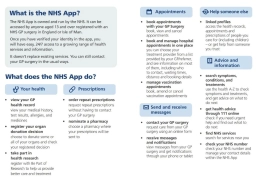
Get started swiftly with the NHS App Quick Start Guide for iOS and Android!
Let’s kick off your NHS App journey with ‘Getting Started with the NHS App’. It’s crafted to make your sign-up process a breeze!
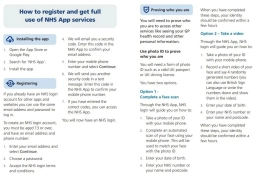
Here’s your guide to ordering request repeat prescriptions with the NHS App. Make life simpler!
Did you know: Every month in 2024, around 2 million repeat prescriptions are ordered through the NHS App and NHS Website!
You can utilise the NHS App to:
- View prescribed items
- Identify the prescription type (repeat or one-off)
- Determine the prescribing professional
It’s a completely free service that is quick, easy, and convenient for your patients.
When you select a repeat prescription request, it is sent directly to the surgery for sign-off and then issued directly to the nominated pharmacy. Orders can be made at any time at your convenience, and you don’t have to wait for surgery to open.
Once you have placed an order, you can view your repeat prescriptions status and history, including when an item was last ordered.
Here’s how to request a repeat prescription through the NHS App.
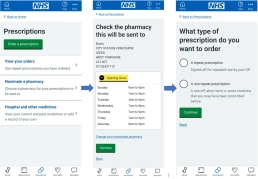
Step 1: Prescriptions Screen
- Select the ‘Your nominated pharmacy‘ option to verify that your prescription will be sent to your chosen pharmacy. You can change your nominated pharmacy at any time. It’s best to do this before placing an order to ensure your prescription is sent to the correct pharmacy.
Step 2: Confirm the Pharmacy
- Refer to ‘Choose a nominated pharmacy’ above for instructions.
- If you are satisfied with your nominated pharmacy, click ‘Back’ to return to the previous Prescriptions screen.
- Click on the ‘Order a Prescription’ button.
Step 3: Choose the Type of Prescription
- You have two options: repeat prescription and non-repeat prescription. Non-repeat prescriptions are one-time medications you may have ordered previously. To order a non-repeat prescription, contact your GP surgery directly, as this option is not available through the NHS App.
- Select ‘A repeat prescription’ and click ‘Continue’.
Step 4: Select Your Medicines
- The next screen displays the medications you can request. Choose the medicines you need and click ‘Continue’. If necessary, you can add a note for your GP in the free text box provided.
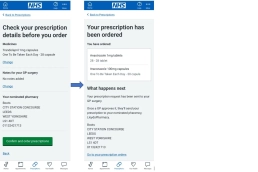
Step 5: Verify Your Prescription Details
- Review your order and ensure your nominated pharmacy is correct.
- If everything is accurate, click ‘Confirm and request your prescription’.
- To make any changes, select the ‘Back’ option to return to the previous screen.
Step 6: Prescription Ordered
- Your request is now confirmed and will be sent to the GP surgery for approval.
- Once approved, the prescription will appear as issued on your order summary screen and will be sent to your nominated pharmacy.
- Your pharmacy will notify you when your prescription is ready for collection. For any queries, please contact the pharmacy directly.
Hospital Waiting Times
Along with this, the NHS App will display the mean (average) waiting time for patients aged 16 and above who have been referred to a specialty at NHS acute trusts.
Discover further details about hospital waiting times within the NHS App.
For other functionalities of the NHS App, we will now take a look at the video guides available.
NHS App Video Tutorials
Use these Video Tutorials to help you use the NHS App so that you can easily View Information about your Medical Record, Request Repeat Prescriptions and access your NHS Services with the NHS England App
These are video tutorials demonstrating the step-by-step usage of the NHS Login App. They illustrate how to navigate through the access services, log in to your NHS digital app gives secure way to access and the app will then securely connect services online, run by the NHS, order repeat prescriptions from online services, with iPhone or iPad supports touch id or face or google play, The app gives you a simple way to access a range of information from your NHS to book appointments, set up an NHS login, test results, access NHS services securely anytime and anywhere, get important messages, notifications, use it to log access the NHS app.
Assistance with Utilising the NHS App
If you or anyone else require any assistance with the NHS App, please use this form to contact the NHS App support team. Securely connect to information registered with a GP. The NHS England digital NHS app gives touch ID or face ID to access your detailed information, and like you the patients to send non-urgent enquiries and send replies using the clinical system, health conditions, GP records and use 111 online.












